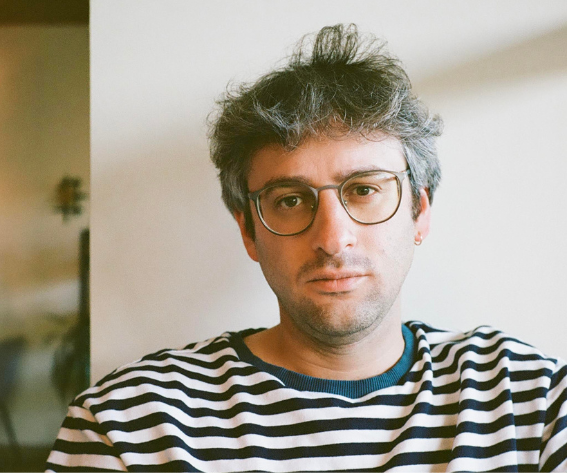February is an interesting month of the year when it comes to films. Overall, it’s a celebration of the industry, with many of the year’s most mainstream award ceremonies happening within this time span. However, it is usually not the most eventful in terms of new releases. Thankfully, we were spoiled for choice here at TMFF when it came to quality entries, and had a tough time deciding on our winner – which, in the end, is ‘Good Filipino Kids‘. We had a quick chat with director Andrew Acedo about his film.
JL: Congrats, Andrew, for a great film! We loved Good Filipino Kids – an excellent blend of humour, drama and coming of age, all seen from a cultural lens. What’s the secret for such a harmonious approach?
AA: Thank you so much for your kind words! I’m glad you found the mixture of those components effective. I’d say my personal secret is to not take life too seriously. It isn’t natural for me to write a straight up drama because if I start to head solely in that direction, I feel the urge to infuse some humor in there, even if it’s for a short amount of time or just a line of dialogue. I think living itself is a hilarious, almost absurd concept, so I need to combat the serious, dramatic feelings I have inside with a few laughs along the way. For the coming-of-age and cultural aspects, my secret to that is simple: pulling from my own life. The film is incredibly personal, through both the love story and feelings I’ve had for my entire life. So to combine those with my tendencies as a filmmaker to juxtapose humor with drama made for what Good Filipino Kids ended up being, and the team’s very happy with the result!
JL: What’s the most important factor to consider when setting off on a project exploring the integration of one culture within another one?
AA: I think the most important factor when exploring assimilation of culture and people is authenticity. I think it’s vital to either be a part of, a witness of and/or a serious researcher of the specific culture’s integration. Otherwise, the film might come off as worse than disingenuous, it could be potentially be disrespectful. So as a 1st generation Filipino American, I felt as if I was equipped with the knowledge and myriad of experiences to paint an honest portrait of what this film explores.
JL: What I liked a lot personally was the middle ground that the film takes – not criticising, but merely observing – which is not easy to pull off when attempting to capture a layered and nuanced set of ideas. How did you succeed with regard to that?
AA: With this film, I knew I was attempting to talk about something that wasn’t simple or surface-level. In fact, most – if not all – of the questions I raise or try to answer in this short film are still unanswerable to me. I’m still figuring it all out. Because of that, I didn’t want to lay out a blatant critique of anything or provide a clear-cut answer to what the film asks, as doing so would be an act of lying to myself. Making this film was merely a way for me to acknowledge that, yes, I’m still confused about certain things in the culture I grew up in, and I’m not at complete peace with who I am today and how I’ve been shaped by the environment I’ve been immersed in for all my life. With all that said, I believe I was able to find that middle ground and take a more observational approach because that’s where I currently stand. I’m just an observer like everyone else, and if it makes an audience member feel a certain way or think about their own lives, then that’s great.
JL: You both wrote and directed the film, and got awards for both categories. Two tasks accomplished admirably, but which one would you say was the more difficult one?
AA: The more difficult of the two for me is always directing. Screenwriting is what I’m most natural at, as I started out as a writer. I’ve written poetry, a range of film reviews, critiques and essays, short stories here and there and, of course, more screenplays than I could count. Literature is also passion of mine, and falls in the same category to me as cinema in regards to my favorite artforms. Directing is something I’m learning how to do every day through watching many films and listening to interviews of my favorite filmmakers on loop. I find myself going through marathons of films by one director then moving on to the next, allowing me to get a sense of how “director” is truly another word for “visionary.” And now that this is the 3rd short film I’ve directed, I feel myself steadily improving as a director through not only noticing the film’s quality increase a bit, but also through my refined poise and demeanor on set. When problems arise, I don’t get nearly as anxious as I did on my 1st and 2nd film. So directing was definitely the more challenging of the two, as the screenplay flowed out of me to a point where it felt as if the characters were writing their own dialogue. With directing, you have to reshape your screenplay to fit what’s actually possible, and that’s something I’m still adjusting to. With that said, I’m a firm believer that whatever the film ends up being is what it’s meant to be, and I’m proud of what the team pulled off despite the obstacles that came our way. I’m incredibly honored to receive awards for both Best Director and Best Screenwriter from TMFF. It truly meant a lot.
JL: How did you approach the casting decisions, and have you worked with any of the actors or actresses before?
AA: During auditions, all you wait for is that special someone to show you something even you, as the writer and director, couldn’t imagine. While you come across a select few that appear to be hand-in-glove fits to what you initially envisioned, there’s always that one or two that open your eyes to what’s actually better. Those gems will ultimately make this character you wrote a real human being, as the characters you wrote as merely text on the page and an image in your head. In short, there are auditions where that image in your head seems to come to life. And then there are the even rarer ones where the image in your head is destroyed and the true spirit of the character comes out. That’s what happened with Anais Noveras and Reden Magtira, who play the film’s two leads. They were auditioning against other actors who may have fit what was in my head better, but what they both did was make me realize who Ashley and Francis are spiritually. I got to a point where I believed they were born to play these roles, and as cheesy as it may all sound, it’s the place I think directors should always get to in their auditioning process. In the case of Evyn Mirasol, who plays Rachel, she’s a good friend of mine and I wrote the part for her. This was the first time I’ve worked with the three actors, and I can’t wait to work with them again.
JL: Is there a central message of the movie that you would like to emphasise? Or should it mean different things for different people?
AA: I believe there are certain thematic pillars the film has: the 1st generation Filipino American experience, the Filipino immigrant’s beliefs and values, Catholic guilt, not feeling Filipino enough or BLANK enough, the desire for love and romance to run free, etc., but I want the film to end up meaning different things to different people. I don’t think, for example, a Filipino American in their 20s will feel similarly about this film as their Filipino parents in their 50s or 60s who immigrated here well into their adulthood. While the experience of watching the film is meant to be shared inter-generationally, the content of it is meant to be interpreted separately.
JL: Any other projects that you’re working on currently?
AA: I’m currently trying to write both a feature and a TV show that center around the Filipino American experience. The making of this film and how it turned out has encouraged me to continue writing and making stories about my culture, identity and the world they’re put in.
JL: Thanks for your time, Andrew! Hope to see more of your stuff at TMFF!
AA: Thank you, The Monthly Film Festival! Your support has been amazing and I look forward to submitting more films to you soon!









Leave a reply